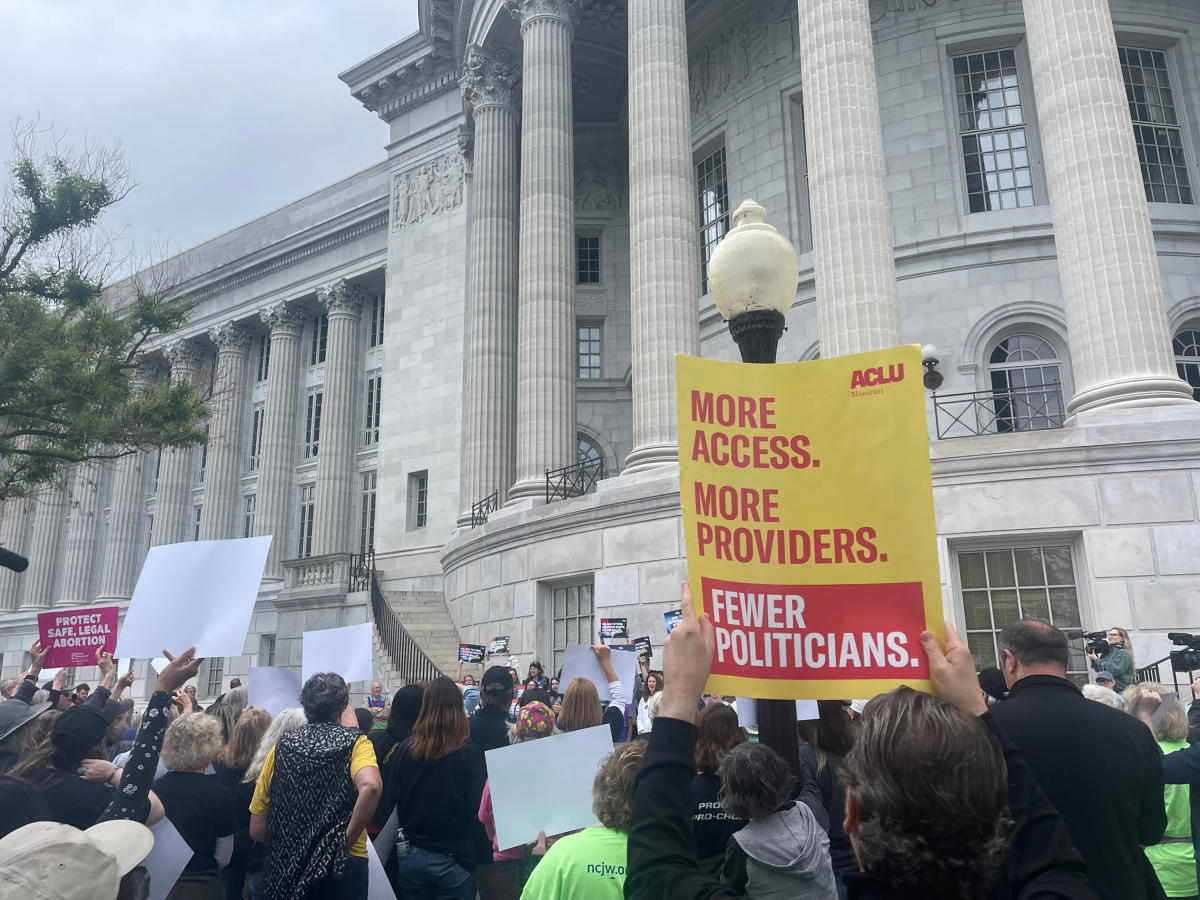Missouri and South Dakota are witnessing significant movements toward revisiting their stringent abortion laws through citizen-sponsored ballot measures.
Despite being reliably Republican states, both are grappling with near-total abortion bans that activists seek to overturn by establishing a constitutional right to abortion.
In Missouri, a coalition of abortion rights groups has garnered substantial support, submitting over double the required signatures for a ballot amendment.
Similarly, South Dakota’s petition drive has surpassed the necessary threshold for a ballot amendment, showcasing widespread grassroots efforts to challenge existing legislation.
Citizen-led Initiatives Challenge Stringent Bans, Redefining Reproductive Rights in Republican Strongholds

These initiatives align with a broader trend across several states, where abortion rights supporters have achieved success in ballot measures following the Supreme Court’s overturning of Roe v. Wade.
With mounting pressure, states like Arizona and Nevada are also witnessing movements towards enshrining abortion rights in their constitutions, buoyed by Democratic hopes for electoral gains.
Despite the Republican stronghold in Missouri and South Dakota, the bans in these states are notably stringent, allowing abortion only in cases where a pregnant woman’s life is at risk. However, polls indicate that a majority of Missourians support legal abortion in most or all cases, suggesting a potential opening for change.

Yet, both states face challenges. In Missouri, Republican legislators are pushing a ballot question to raise the threshold for future amendments, potentially impeding the success of the abortion rights amendment.
Additionally, South Dakota’s certification process may be hindered by a recent law allowing signers to withdraw their support, reflecting broader opposition to abortion rights within the state.
In South Dakota, the amendment’s fate is uncertain as anti-abortion groups seek to thwart its inclusion on the ballot by collecting reversals from signatories.
While the effort has been primarily led by Dakotans for Health, traditional allies like Planned Parenthood have refrained from endorsing the amendment, citing concerns over potential legislative restrictions.

Both amendments aim to establish robust reproductive rights frameworks, allowing individuals to make decisions regarding their reproductive health.
However, undergoing legislative hurdles and oppositional forces underscores the complex scenario surrounding abortion rights in conservative-leaning states.







Leave a Reply